-
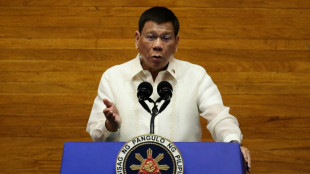 ICC to begin pre-trial hearing for Philippines' Duterte
ICC to begin pre-trial hearing for Philippines' Duterte
-
After two convictions, France's Sarkozy seeks to merge sentences
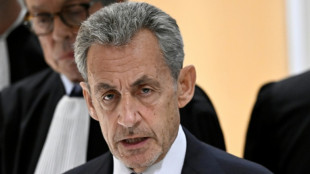
-
 Bridgeman hangs on to claim first PGA Tour title at Riviera
Bridgeman hangs on to claim first PGA Tour title at Riviera
-
Hong Kong appeals court to rule on jailed democracy campaigners
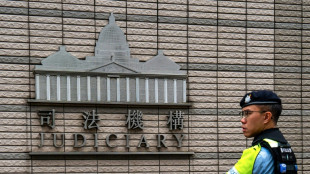
-
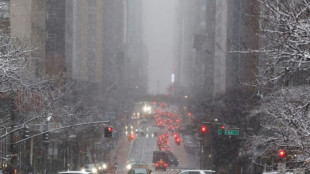 Blizzard blows New Yorkers' plans off course
Blizzard blows New Yorkers' plans off course
-
More than 200 political prisoners in Venezuela launch hunger strike
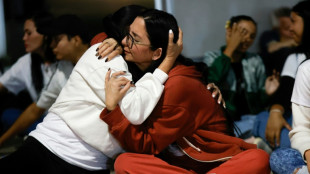
-
 Milan-Cortina hailed as 'new kind' of Winter Olympics at closing ceremony
Milan-Cortina hailed as 'new kind' of Winter Olympics at closing ceremony
-
Thunder strike from long range to halt Cavs' seven-game win streak

-
 Strasbourg snap Lyon winning run in Ligue 1
Strasbourg snap Lyon winning run in Ligue 1
-
Top Mexican drug cartel leader killed

-
 'One Battle' triumphs at BAFTAs that honour British talent
'One Battle' triumphs at BAFTAs that honour British talent
-
New Nissan Leaf 2026 review

-
 Giroud penalty ends Lille's winless run in Ligue 1
Giroud penalty ends Lille's winless run in Ligue 1
-
Thrashing Spurs dragged Arsenal out of title hell: Arteta

-
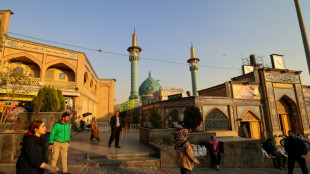 Iran-US talks expected Thursday despite fears of strikes
Iran-US talks expected Thursday despite fears of strikes
-
Milan beaten by Parma, Napoli rage at officials

-
 Hughes looses teeth then scores Olympic gold-winning goal for USA
Hughes looses teeth then scores Olympic gold-winning goal for USA
-
Eze and Gyokeres destroy Spurs to boost Arsenal title bid

-
 Arsenal's Eze sinks Spurs again, Liverpool late show floors Forest
Arsenal's Eze sinks Spurs again, Liverpool late show floors Forest
-
Galthie praises France lock Meafou and defence

-
 'Nothing was good', says Mac Allister despite Liverpool win
'Nothing was good', says Mac Allister despite Liverpool win
-
USA defeat Canada for Olympic men's ice hockey gold, Trump celebrates

-
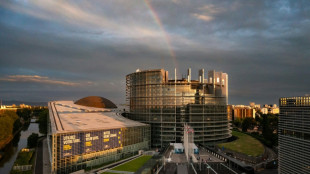 EU 'expects' US to honour trade deal as Trump hikes tariffs
EU 'expects' US to honour trade deal as Trump hikes tariffs
-
'GOAT' battles to top of N. America box office

-
 South Africa thrash India to end 12-match T20 World Cup win streak
South Africa thrash India to end 12-match T20 World Cup win streak
-
Bielle-Biarrey breaks record as France beat Italy in Six Nations

-
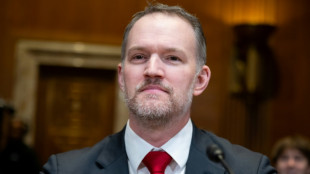 US says trade deals in force despite court ruling on tariffs
US says trade deals in force despite court ruling on tariffs
-
Barcelona back top of La Liga with Levante win

-
 Gu strikes gold, USA beat Canada in men's ice hockey
Gu strikes gold, USA beat Canada in men's ice hockey
-
What's behind England's Six Nations slump?

-
 Napoli rage at officials after loss at Atalanta
Napoli rage at officials after loss at Atalanta
-
Liverpool late show floors Nottingham Forest

-
 Rimac Nevera R: Beyond imagination
Rimac Nevera R: Beyond imagination
-
USA beat Canada to win men's Olympic ice hockey gold
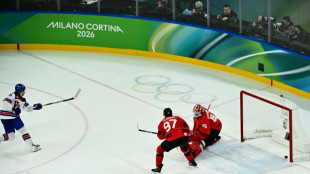
-
 Samardzic seals comeback win for Atalanta over Napoli
Samardzic seals comeback win for Atalanta over Napoli
-
Eileen Gu switches slopes for catwalk after Olympic flourish

-
 Luce: Ferrari's ingenious electric revolution
Luce: Ferrari's ingenious electric revolution
-
Miller guides South Africa to 187-7 against India

-
 Scotland boss 'proud' of comeback Six Nations win over Wales
Scotland boss 'proud' of comeback Six Nations win over Wales
-
Iranian students rally for second day as fears of war with US mount

-
 US Secret Service kills man trying to access Trump Florida estate
US Secret Service kills man trying to access Trump Florida estate
-
Coventry 'let the Games do their magic': former IOC executives

-
 Cayenne Turbo Electric 2026
Cayenne Turbo Electric 2026
-
Sri Lanka have to qualify 'the hard way' after England drubbing

-
 Doris says Six Nations rout of England is sparking Irish 'belief'
Doris says Six Nations rout of England is sparking Irish 'belief'
-
Thousands of pilgrims visit remains of St Francis

-
 Emotional Gu makes history with Olympic freeski halfpipe gold
Emotional Gu makes history with Olympic freeski halfpipe gold
-
Impressive Del Toro takes statement victory in UAE

-
 Gu wins triumphant gold of Milan-Cortina Olympics before ice hockey finale
Gu wins triumphant gold of Milan-Cortina Olympics before ice hockey finale
-
England rout Sri Lanka for 95 to win Super Eights opener

Can the FANB shield Maduro?
Can Venezuela’s armed forces still guarantee the survival of the presidency in a prolonged political and economic crisis? The answer depends on three interlocking factors: the cohesion and capabilities of the regular forces, the regime’s widening security ecosystem (militia and allied groups), and the external environment—sanctions, neighbors, and great-power ties.
Order of battle vs. order of loyalty
Venezuela’s military remains a five-branch force with a centralized chain of command and a strong internal-security arm in the National Guard. Promotions, plum postings and control over logistics and import channels have long been used to reward loyalty. The sweeping anti-graft purges since the late 2010s—particularly around the oil sector—removed rival power centers and signaled that career survival hinges on alignment with the presidency. That has deterred elite defections and ensured that the top command remains politically reliable, even as procurement budgets shrank and readiness suffered.
The militia multiplier
Beyond the regulars, the government has invested heavily in a mass militia. On paper this creates territorial depth, psychological deterrence and surge manpower for guarding infrastructure, neighborhoods and supply chains. In practice, militia units vary widely in training and equipment. Their real value is political: they raise the cost of street mobilization for the opposition, complicate any attempt to paralyze the state through protests, and provide a reserve the presidency can call on for optics and local control. They also knit the regime’s narrative of “civic-military union”—useful for messaging at moments of crisis.
Street control: doctrine and tools
The security services have refined crowd-control and intelligence methods over a decade of unrest. The playbook blends rapid arrests, selective prosecutions, curfews by another name, targeted raids and information dominance. Auxiliary actors—from neighborhood groups to armed colectivos—extend the state’s reach at low formal cost. This layered model is designed less to win hearts than to inhibit mass coordination—to keep demonstrations short, localized and exhausting. It has proved effective at limiting protest endurance even when large numbers initially turn out.
Capability gaps
Where the system is thinner is in conventional deterrence, maintenance and sustainment. Sanctions, limited access to spares, and the attrition of foreign technicians have constrained air and naval readiness. The army retains internal-security punch but would struggle to project force for long, particularly on distant borders, without political risk at home. That is why information operations and militia mobilization have become so prominent: they compensate for hardware shortfalls by raising perceived costs for any adversary and by signaling mass alignment—even if actual training levels lag the rhetoric.
The regional chessboard
External pressure cuts both ways. Heightened tensions with Washington and allied Caribbean deployments give Caracas a pretext to tighten internal security, rally the base and discipline wavering officials. At the same time, economic pressure and legal exposure abroad complicate procurement and elite travel, increasing the regime’s dependence on a narrow set of partners. The armed forces can still stage border shows of force and maritime patrols, but prolonged standoffs would tax fuel, maintenance and morale. Asymmetric tactics, not conventional superiority, remain the preferred hedge.
What could break the shield?
Fragmentation at the top. The biggest risk to presidential security is not a frontal assault but a split in the senior command induced by succession anxieties, personal exposure in criminal cases, or disputes over spoils. Purges have reduced that risk—but have not eliminated it.
Synchronized urban pressure. The security architecture is built to suppress rolling protests. Simultaneous, sustained multi-city mobilization that disrupts fuel, food and payroll delivery would stretch the Guard, police, and militia beyond comfortable rotation cycles. Security-service overreach. Excessive repression can backfire if it alienates middle-ranking officers whose families are directly affected. Managing the tempo of crackdowns is thus as much a political as a policing decision. Economic shock. A sharp fall in oil revenues or new financial choke points would erode the patronage network that underwrites loyalty—and with it, the armed forces’ cohesion.
Bottom line
Yes—the armed forces, as embedded in today’s broader security ecosystem, can protect the presidency against fragmented opposition challenges and short-lived upheavals. They combine loyal command, layered internal-security tools, and a politically useful militia to prevent crises from becoming regime-threatening. But their shield is resilience through control, not surplus capacity. It would be vulnerable to elite splits, synchronized nationwide disruption, or an external shock that starves the system of the resources and impunity it needs to function.

Nicaragua on the brink?

Cuba: The Regime's last Card

Strike fears rise over Iran

U.S. Jobs stall, gdp slows

Japan’s right‑turn triumph

EU India deal gains unveiled

AI sparks Wall Street panic

India defies U.S. tariffs

EU misstep on mercosur Deal

Argentina reshapes oil

Power at the Heart of Iran



